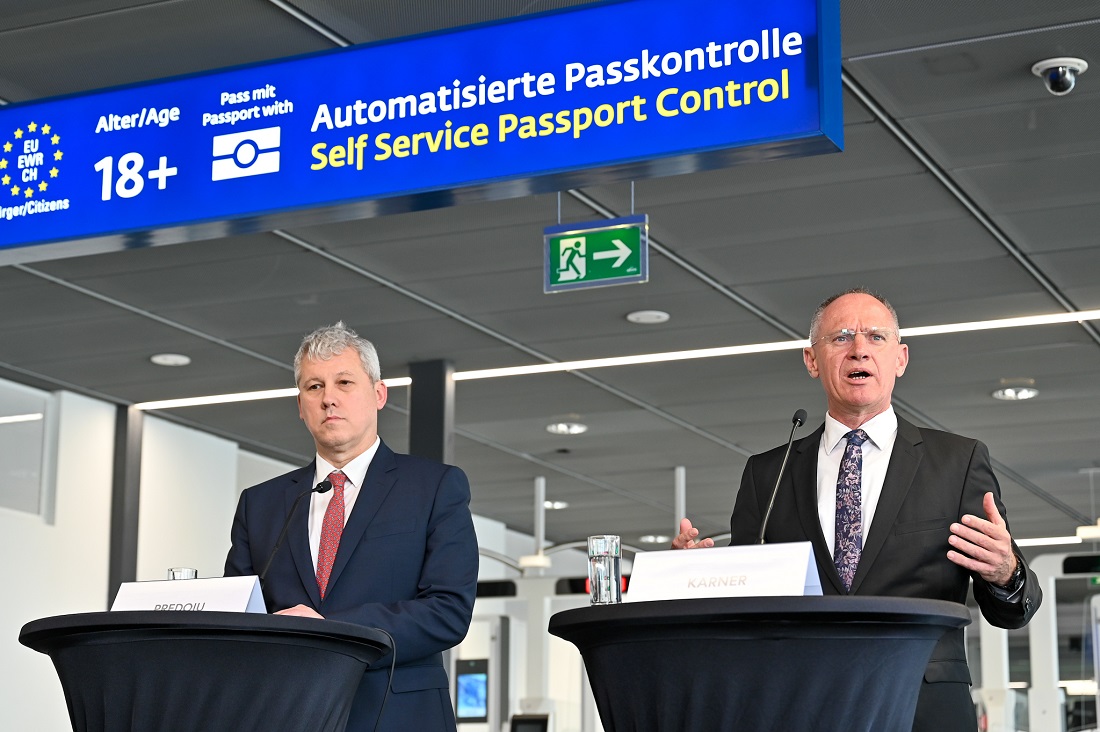Sponsored Content
Partial Schengen Integration of Romania and Bulgaria
A first step towards the full integration of Romania and Bulgaria into the European Schengen area has been completed. With the abolition of entry controls on air and sea travel for citizens of these countries, known as "Schengen-Air", an intermediate path was found between Romania's and Bulgaria's aspirations towards integration and Austria's veto stance.
 Romanian and Austrian interior Ministers Catalin Predoiu (l.) and Gerhard Karner (r.) at Vienna Airport. / Picture: © BMI/Jürgen Makowecz
Romanian and Austrian interior Ministers Catalin Predoiu (l.) and Gerhard Karner (r.) at Vienna Airport. / Picture: © BMI/Jürgen Makowecz
This event, solemnly presented at Vienna's Schwechat Airport by Austria's Interior Minister Gerhard Karner and his Romanian counterpart Catalin Predoiu, marks a partial accession to the Schengen area and symbolizes the progress and close cooperation between the countries involved.
While the joy at the easing of travel conditions is palpable for many citizens, questions remain…
or Log In
Fast News Search





